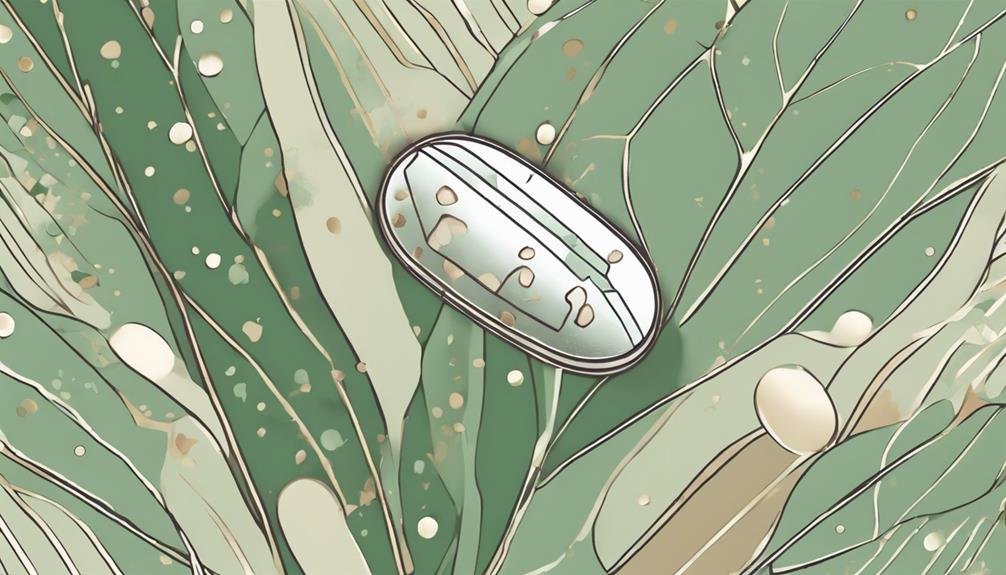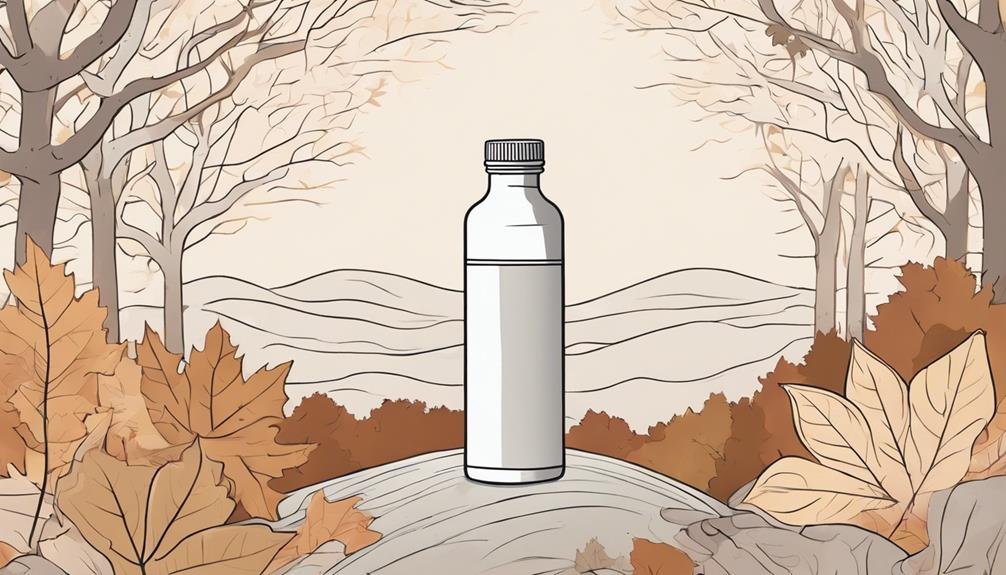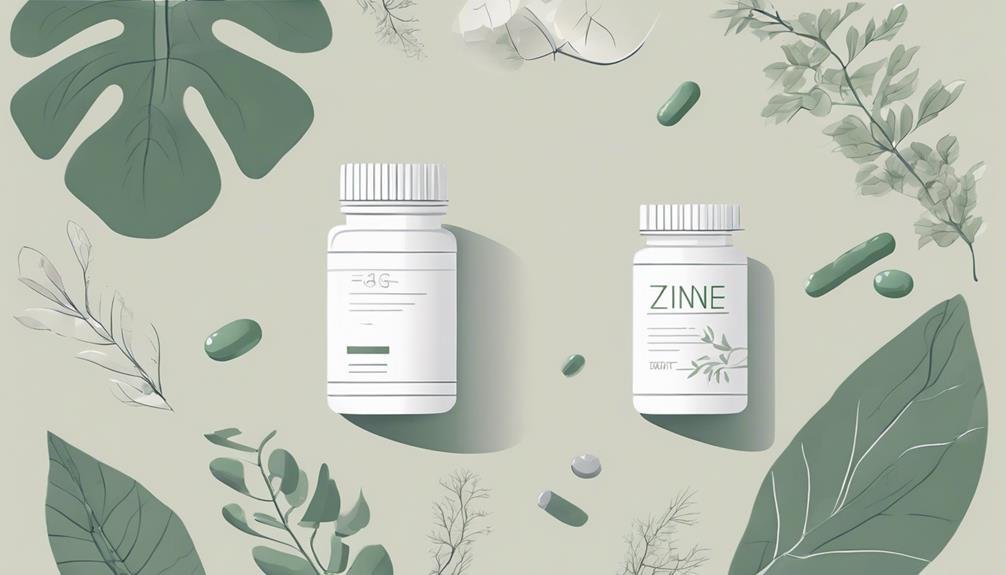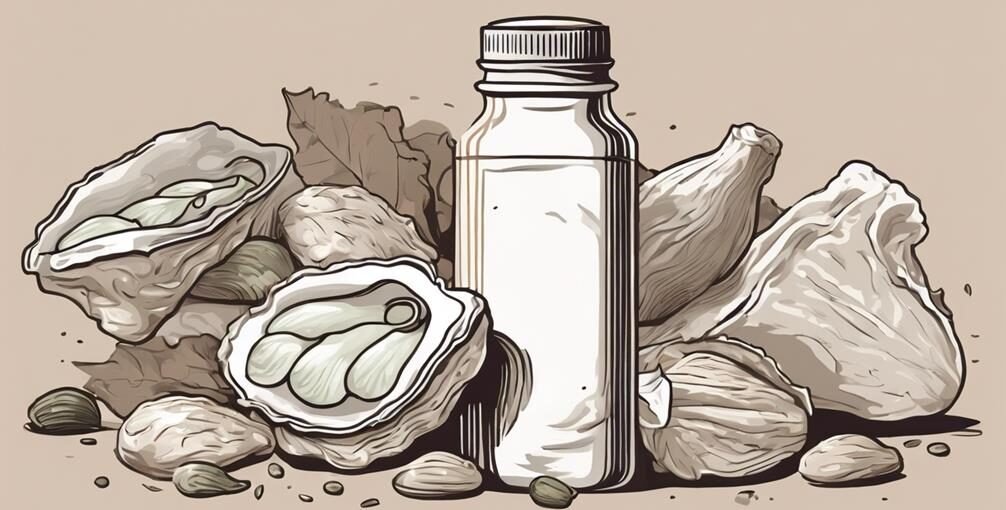Why Does Zinc Impact Male Hormones After 40?
Zinc impacts your male hormones after 40 because it's crucial for testosterone production, which can decline with age. As zinc levels drop, your testosterone may plummet too, leading to fatigue, mood changes, and even reduced fertility. Adequate zinc intake can help maintain hormonal balance and overall energy. Foods high in zinc, like oysters and beef, should be part of your diet to combat this decline. If you're considering zinc supplements, it's wise to consult a healthcare professional for tailored advice. Stick around to discover how lifestyle choices can further support your zinc levels and hormonal health.
Key Takeaways
- Zinc is crucial for testosterone production, which tends to decline in men over 40, affecting energy and vitality.
- Adequate zinc intake helps regulate enzymes that convert cholesterol into testosterone, ensuring stable hormone supply.
- Zinc supports healthy sperm production, essential for fertility, which can diminish with age-related hormonal changes.
- A decline in zinc levels can lead to fatigue, mood changes, and reduced muscle mass, impacting overall health.
Importance of Zinc for Men
Zinc plays an essential role in maintaining male hormonal balance, especially as you age. It contributes considerably to testosterone production, which is critical for your energy levels, mood, and overall vitality.
As you reach your 40s and beyond, your body's zinc levels can decline, potentially affecting hormone levels and leading to various health issues.
Ensuring adequate zinc intake through diet or supplements helps support not just testosterone levels but also metabolic health and immune function. Foods rich in zinc, like oysters, beef, and pumpkin seeds, can be beneficial.
Zinc Deficiency Symptoms

A lack of zinc in your diet can lead to various symptoms that may affect your overall well-being and hormonal balance.
You might notice fatigue and reduced energy levels, making daily tasks feel more challenging. Your immune system may weaken, increasing your susceptibility to common illnesses.
You could experience hair loss and skin issues, such as rashes or delayed wound healing. Additionally, zinc deficiency can impact your mood, leading to irritability or depression.
You might also face issues with appetite and taste perception, making food less enjoyable.
If you're experiencing these symptoms, it's crucial to evaluate your dietary intake and consider including zinc-rich foods or supplements to restore balance in your body.
Zinc and Testosterone Connection
Low levels of zinc can greatly affect testosterone production, impacting your hormonal health as you age. Zinc plays an important role in testosterone synthesis, and insufficient amounts can lead to decreased levels of this essential hormone.
Here are three key points to take into account:
- Testosterone Regulation: Zinc helps regulate the enzymes that convert cholesterol into testosterone, ensuring a steady supply.
- Sperm Production: Adequate zinc levels support healthy sperm production, which is crucial for fertility.
- Muscle Mass Maintenance: Testosterone is necessary for maintaining muscle mass, and zinc deficiency may hinder your fitness goals.
Age-Related Hormonal Changes

As men age, hormonal changes become inevitable, often leading to fluctuations in testosterone levels that can affect overall health and well-being. You might notice a gradual decline in testosterone, which can impact energy, mood, and libido.
These changes can also result in increased body fat, reduced muscle mass, and decreased bone density. Additionally, hormonal shifts might lead to feelings of fatigue or irritability.
While these changes are a natural part of aging, they can feel overwhelming. It's essential to recognize these symptoms and consider lifestyle modifications that can help mitigate their effects.
Staying active, managing stress, and prioritizing sleep can play significant roles in maintaining hormonal balance and overall health as you navigate this life stage.
Dietary Sources of Zinc
Incorporating zinc-rich foods into your diet can greatly support hormonal health and overall well-being. By focusing on these dietary sources, you can guarantee you're getting enough zinc to help maintain ideal testosterone levels and overall vitality.
Here are three excellent sources of zinc to take into account:
- Oysters: Known as one of the richest sources of zinc, they can greatly boost your intake.
- Red Meat: Beef and lamb aren't only delicious but also packed with zinc, making them great additions to your meals.
- Pumpkin Seeds: These are a fantastic plant-based option, providing a good amount of zinc along with healthy fats.
Including these foods regularly can make a noticeable difference in your zinc levels and hormonal balance.
Supplementation Considerations

When considering zinc supplementation, it's imperative to evaluate your individual needs and dietary habits to guarantee ideal hormonal support.
If you suspect you're not getting enough zinc from food, a supplement could be beneficial. However, it's vital to choose the right form; zinc picolinate and zinc citrate are often more easily absorbed than others.
Start with a low dose and monitor how your body responds, as excessive zinc can lead to negative effects like nausea or impaired immune function.
Consulting a healthcare professional before starting supplementation is wise. They can assess your zinc levels and recommend an appropriate dosage tailored to your health needs.
This way, you can effectively support your hormonal balance post-40.
Lifestyle Factors Affecting Zinc Levels

Your daily habits can greatly influence your zinc levels, impacting overall hormonal health as you age. Here are three lifestyle factors you should consider:
- Diet: Consuming a balanced diet rich in zinc-containing foods like meat, shellfish, legumes, and nuts can help maintain ideal levels.
- Alcohol Consumption: Excessive drinking can hinder zinc absorption, so moderating your intake is essential for maintaining hormonal balance.
- Stress Management: Chronic stress can lead to nutrient depletion, including zinc. Incorporating relaxation techniques like meditation or exercise can help preserve your zinc levels.
Questions
Can Zinc Supplementation Improve Libido in Older Men?
Yes, zinc supplementation can improve libido in older men. It boosts testosterone levels, enhances sexual function, and may increase overall energy. Regularly incorporating zinc into your diet could lead to noticeable improvements in your sexual health.
How Does Zinc Affect Mood and Mental Health in Men Over 40?
Zinc plays an essential role in regulating neurotransmitters that affect mood. When you maintain adequate zinc levels, you might experience improved mental clarity, reduced anxiety, and a more stable emotional state, especially as you age.
Are There Side Effects of Excessive Zinc Intake for Older Men?
If you think excess zinc won't wreak havoc on your health, think again! Overdoing it can lead to nausea, headaches, and even a weakened immune system. Moderation's key, so keep those levels in check!
Does Zinc Impact Hair Loss in Aging Males?
Zinc plays a role in hair health, and insufficient levels can contribute to hair loss in aging males. Ensuring adequate zinc intake might help maintain hair growth and combat thinning as you age.
Can Zinc Help With Erectile Dysfunction in Older Adults?
Zinc can help with erectile dysfunction in older adults by supporting testosterone levels and improving blood circulation. If you're considering zinc supplementation, it's best to consult your healthcare provider for personalized advice.
Conclusion
Incorporating zinc into your diet can be a game-changer for your hormonal health as you age.
Imagine your testosterone levels as a car engine; without the right fuel, it can sputter and stall.
By ensuring you get enough zinc, you're not just maintaining your engine—you're fine-tuning it for peak performance.
So, consider adding zinc-rich foods or supplements to your routine and watch how it can rev up your energy and well-being after 40!

